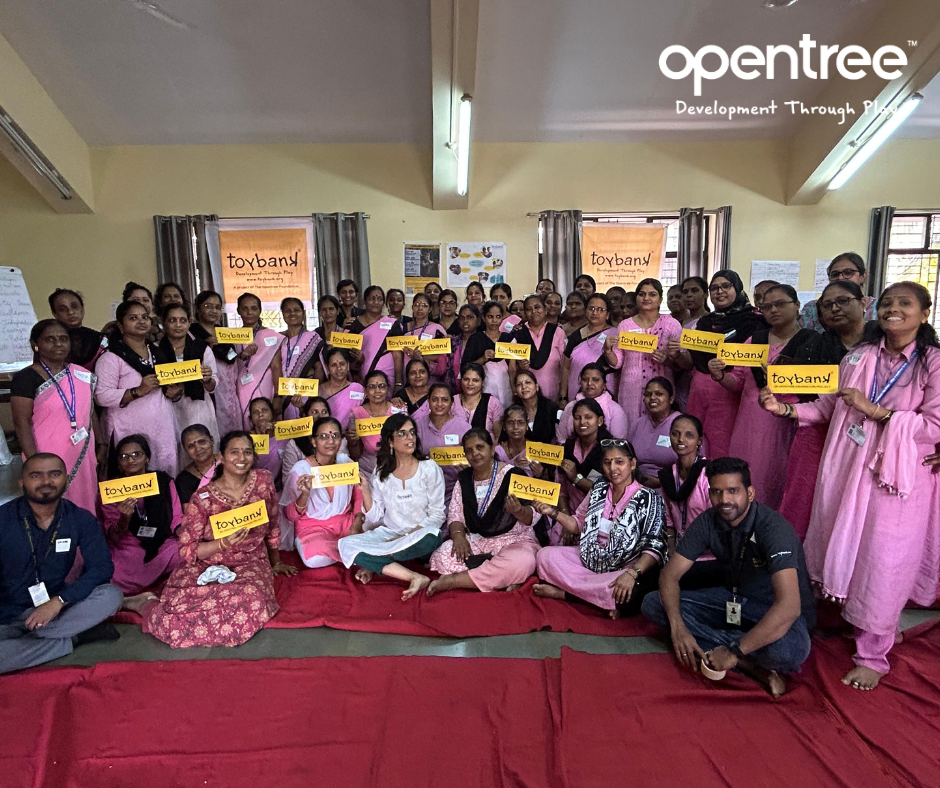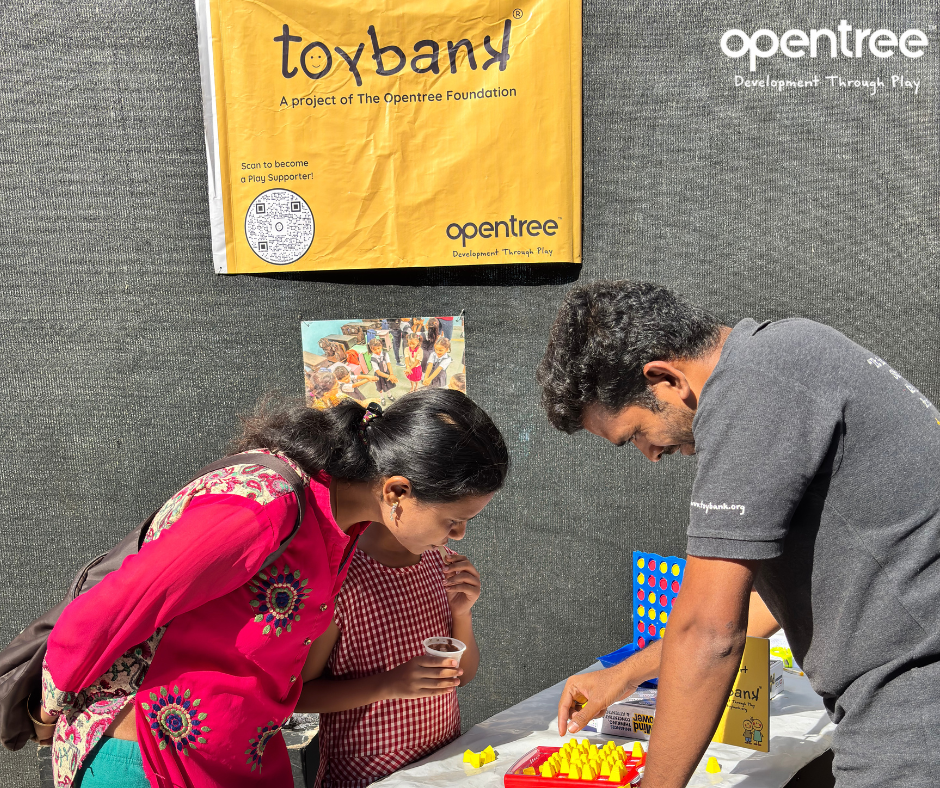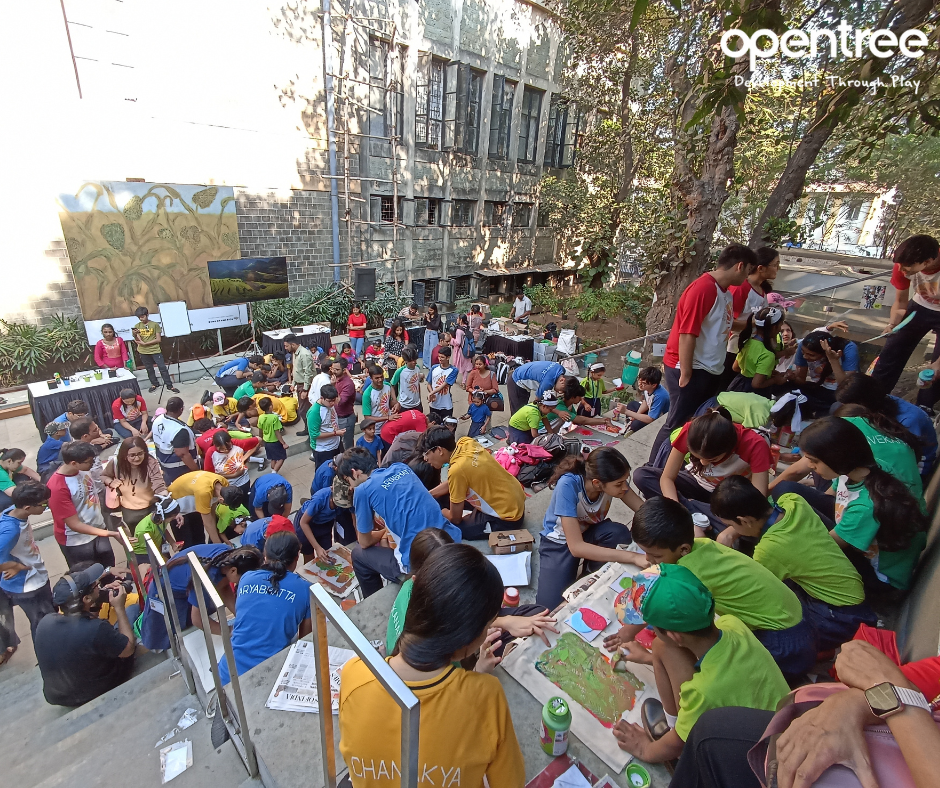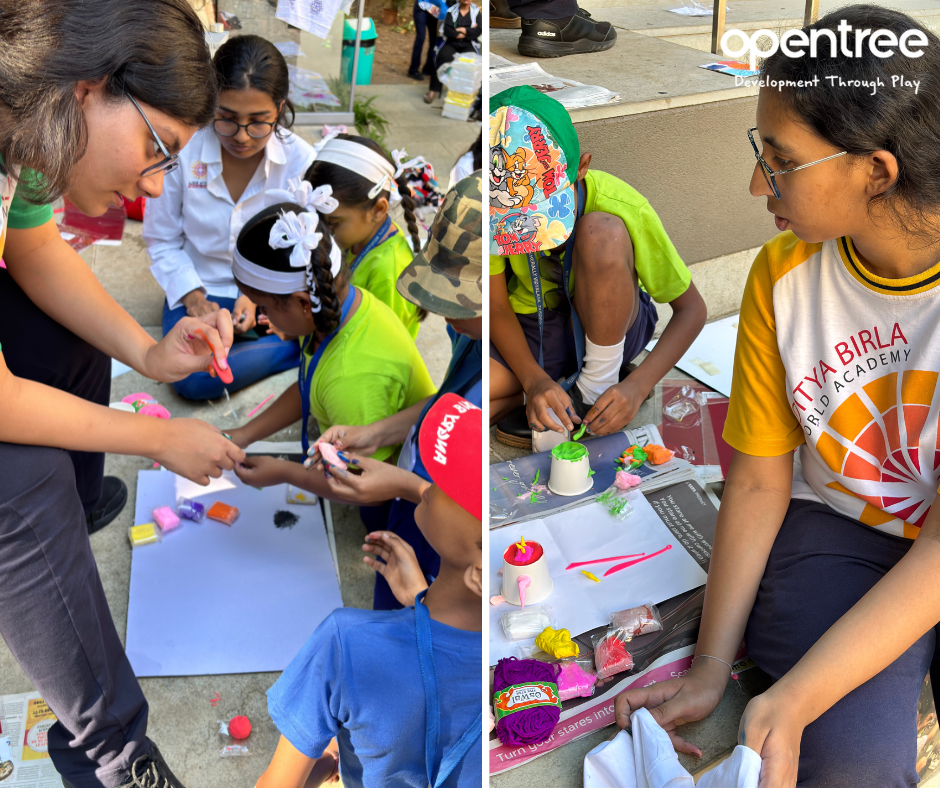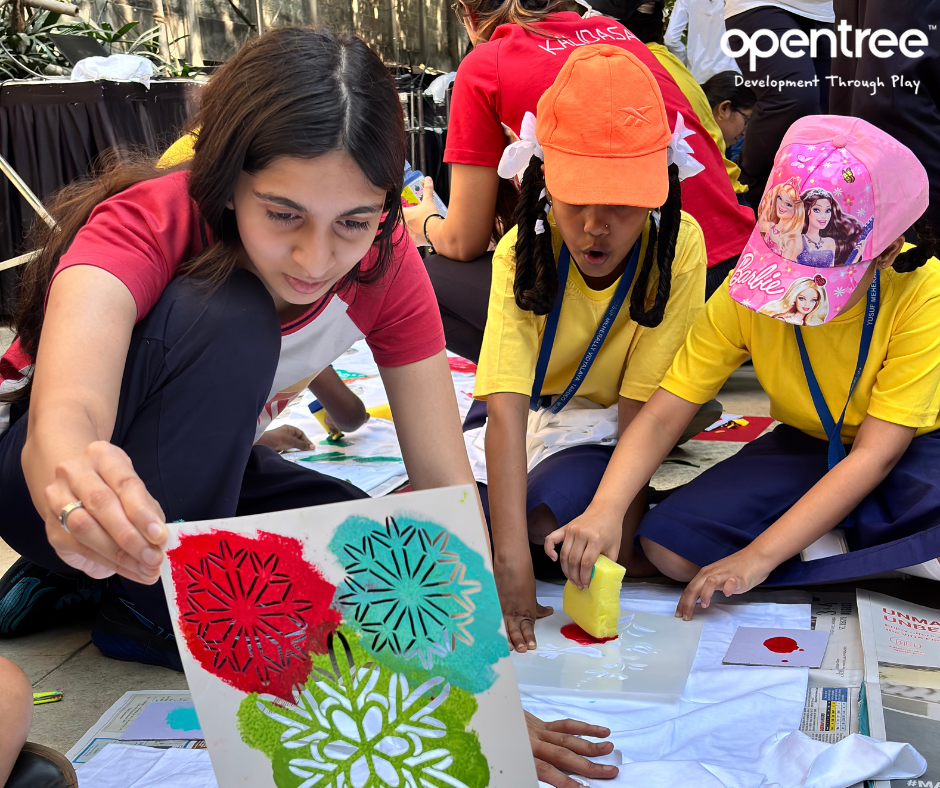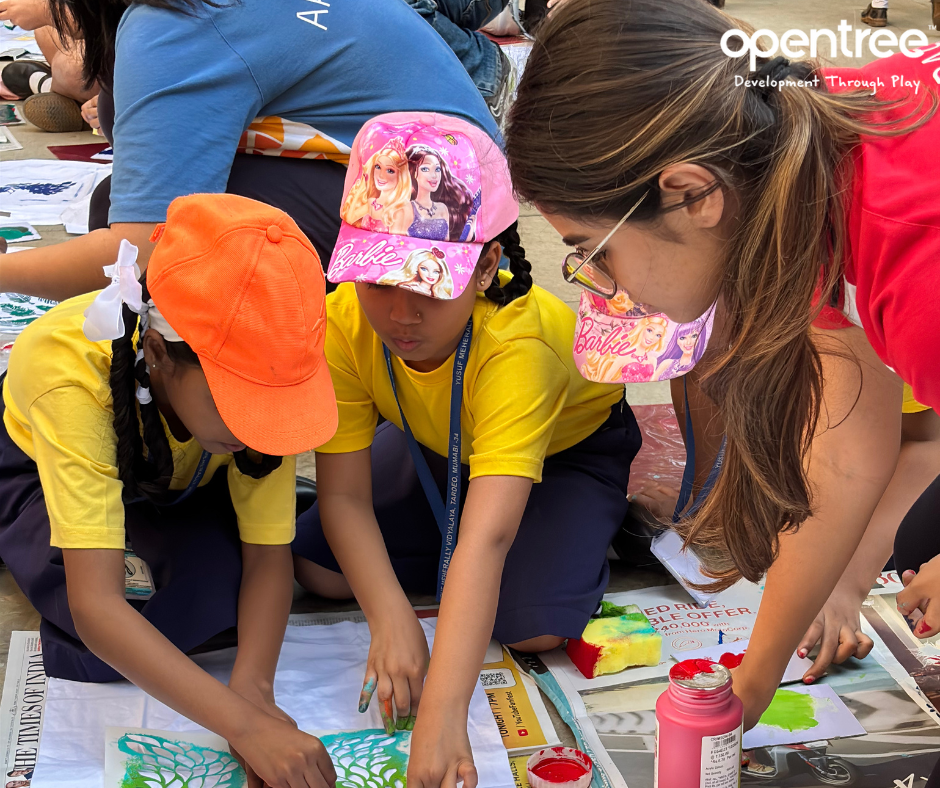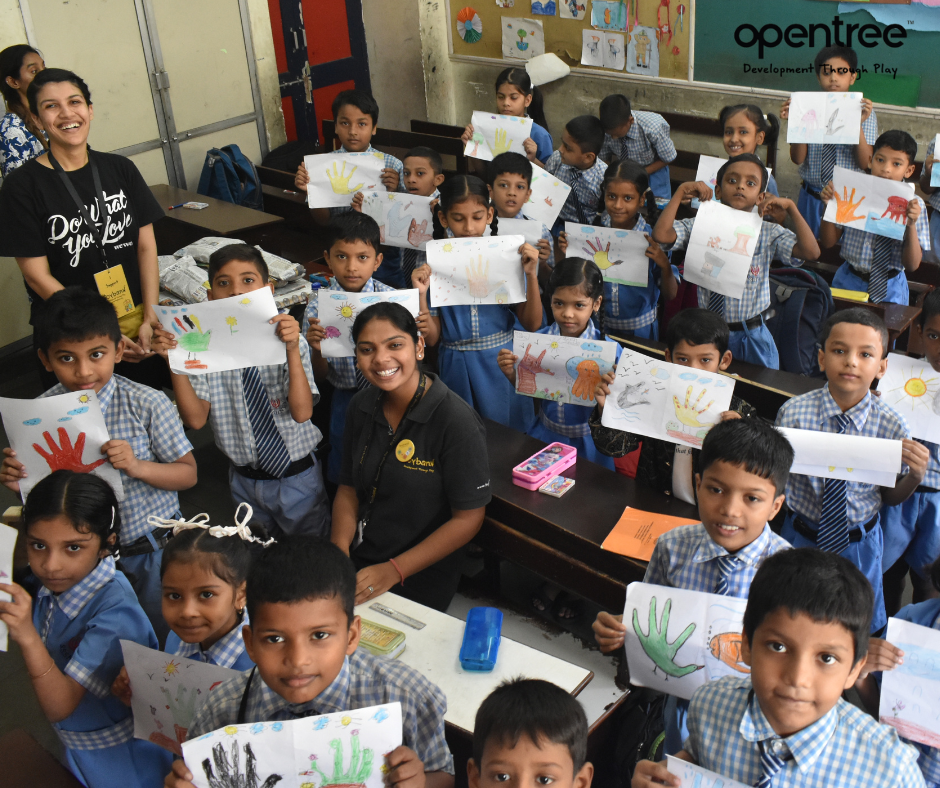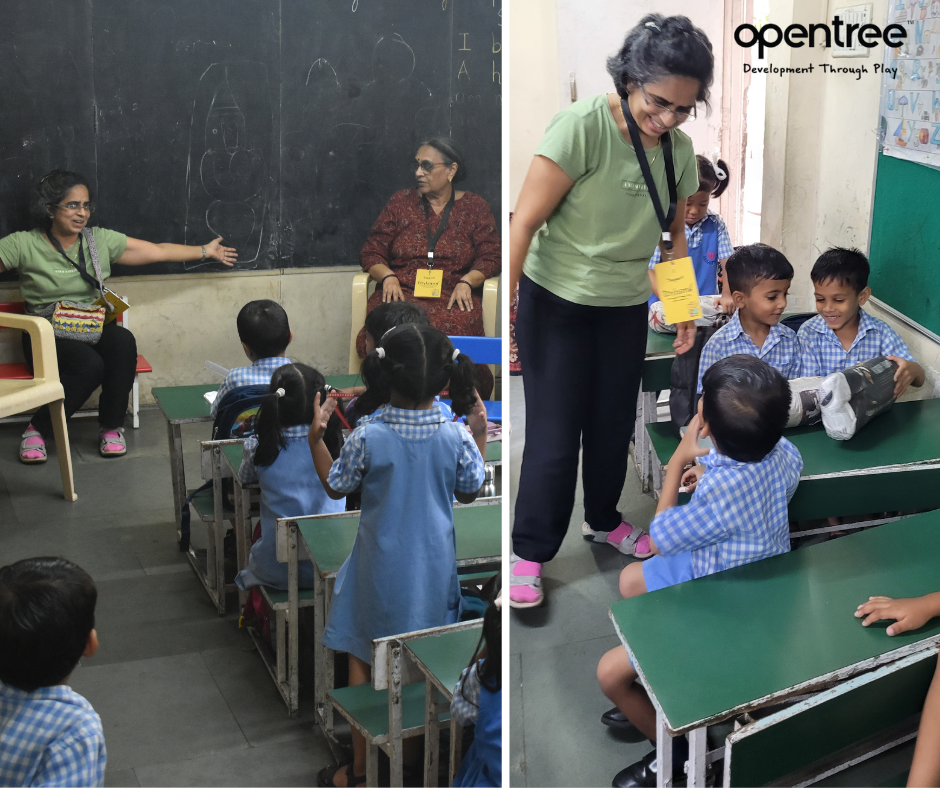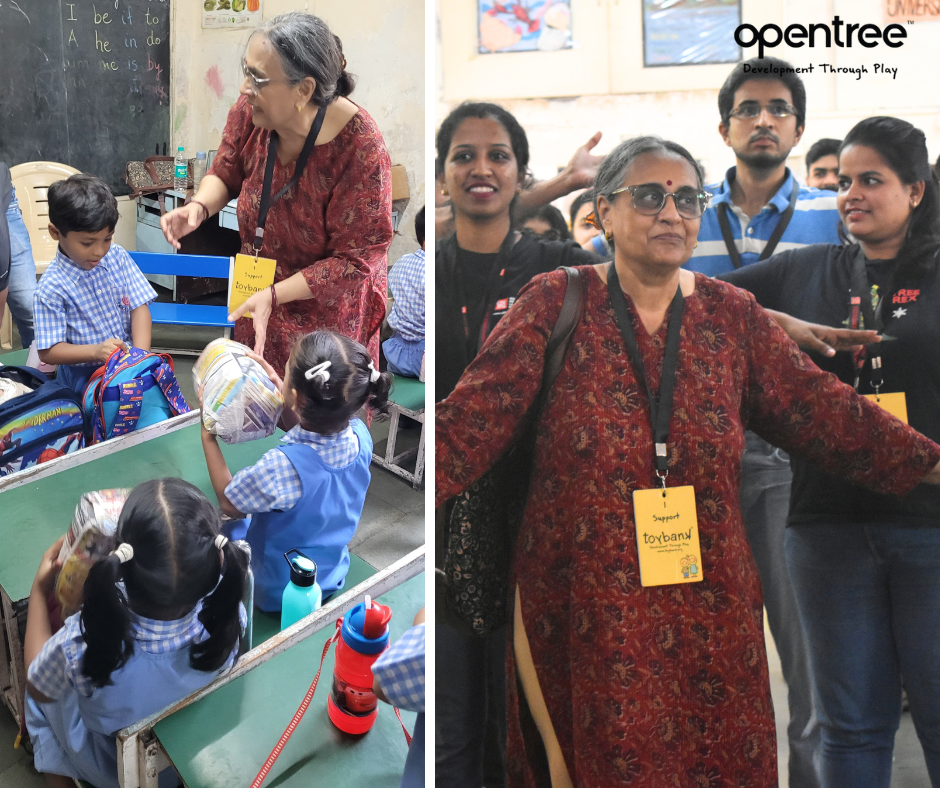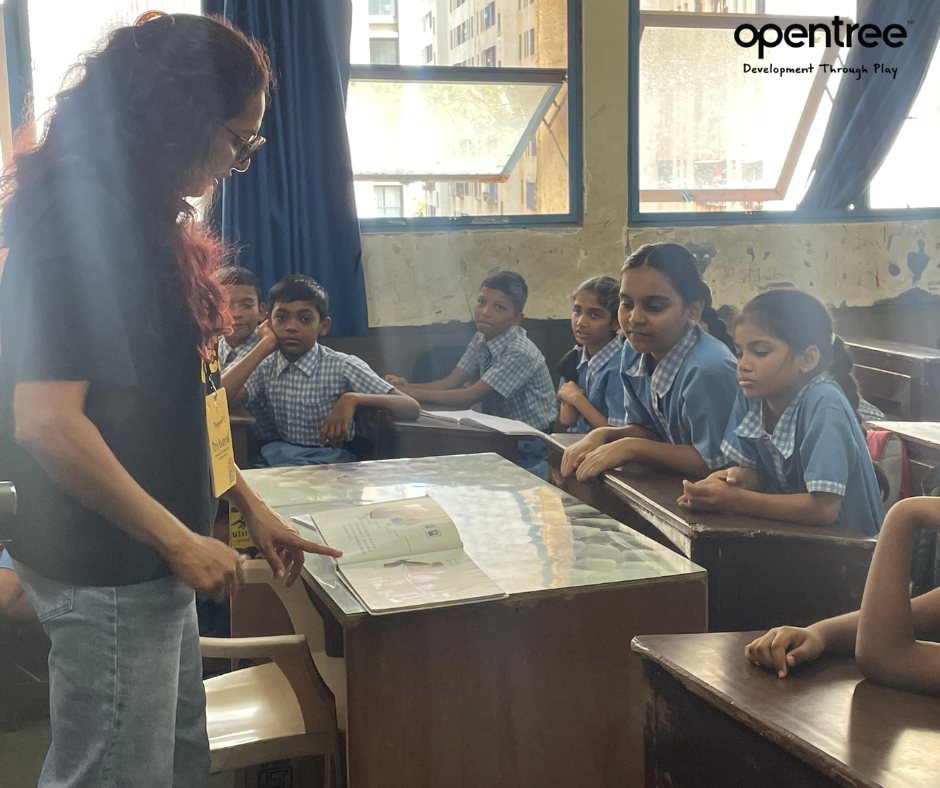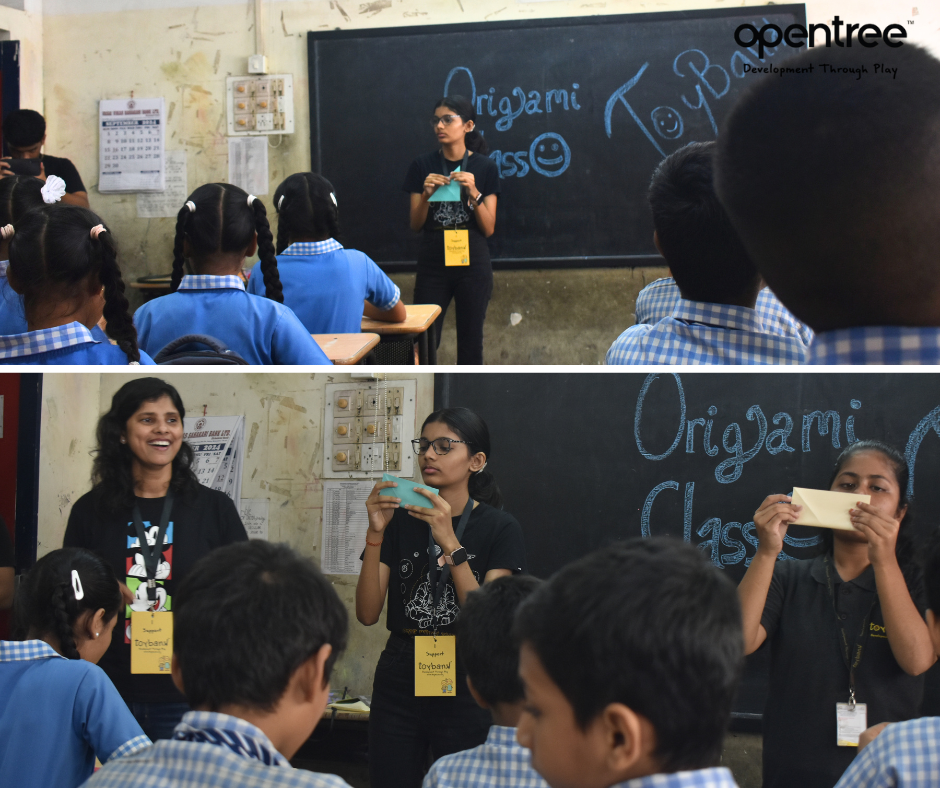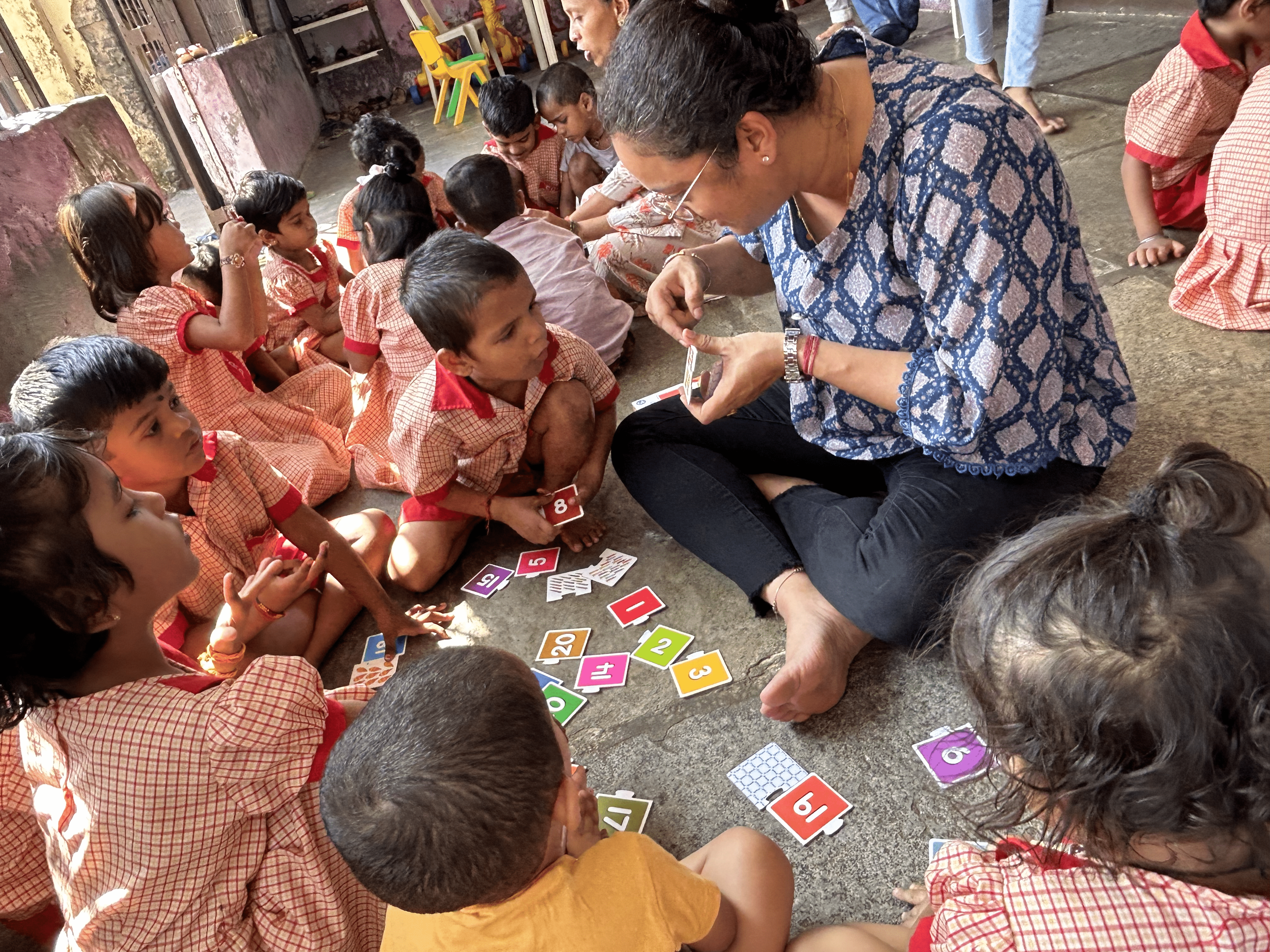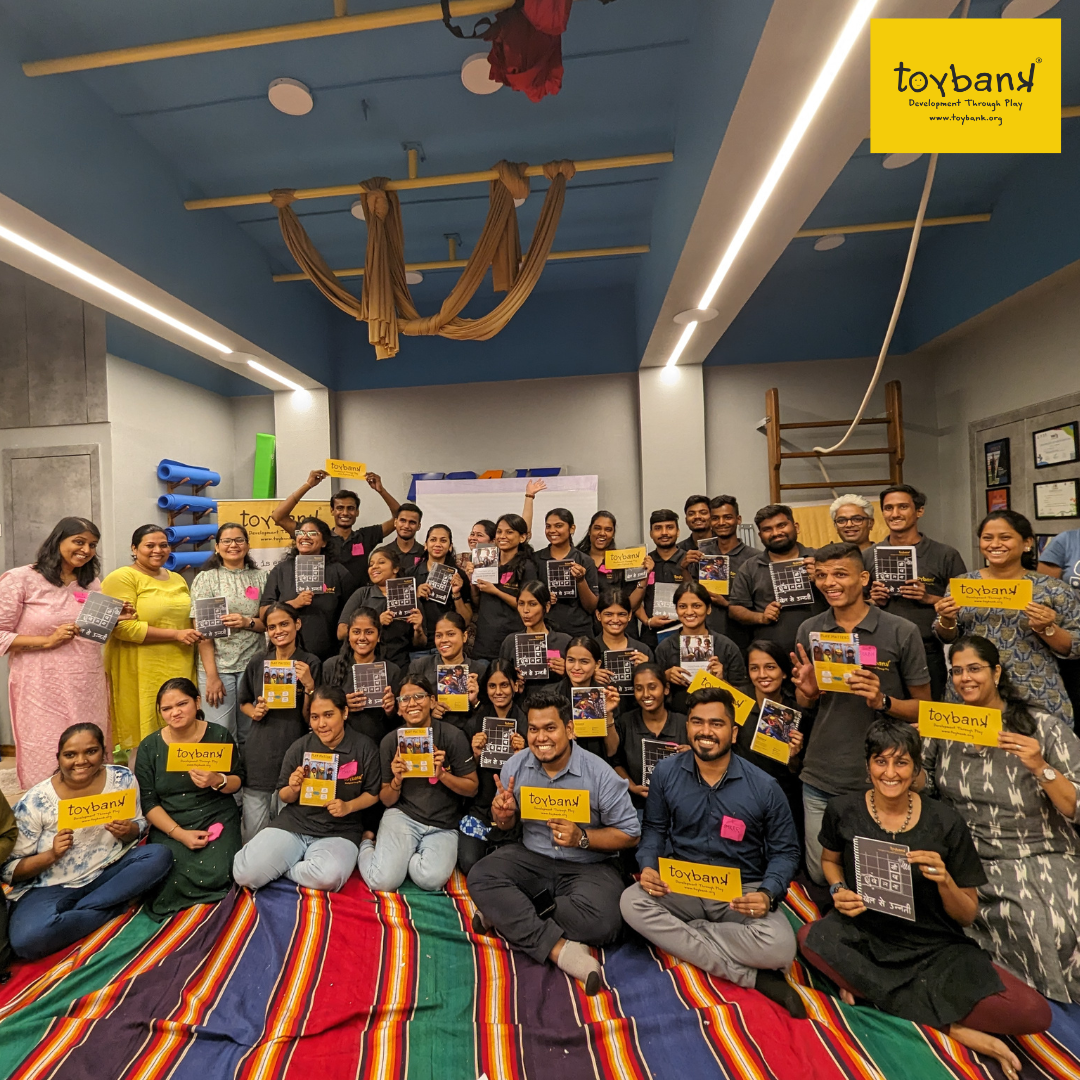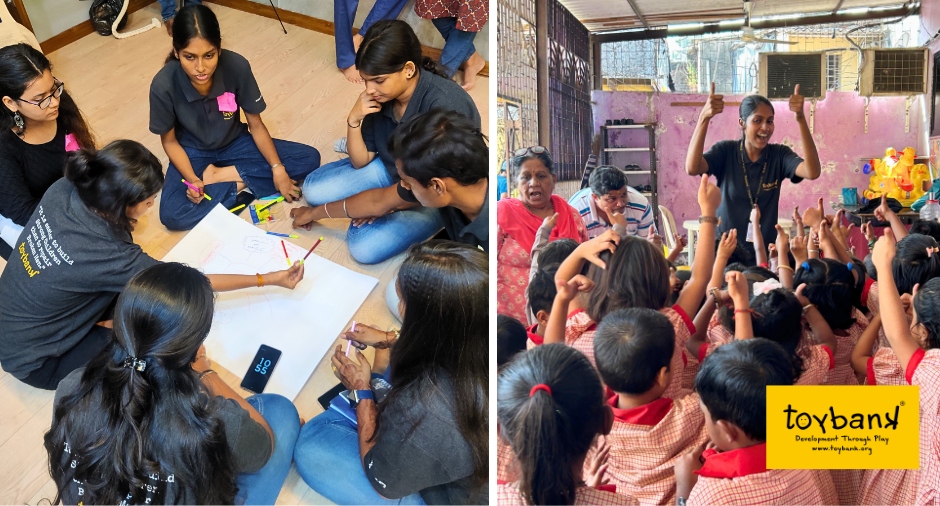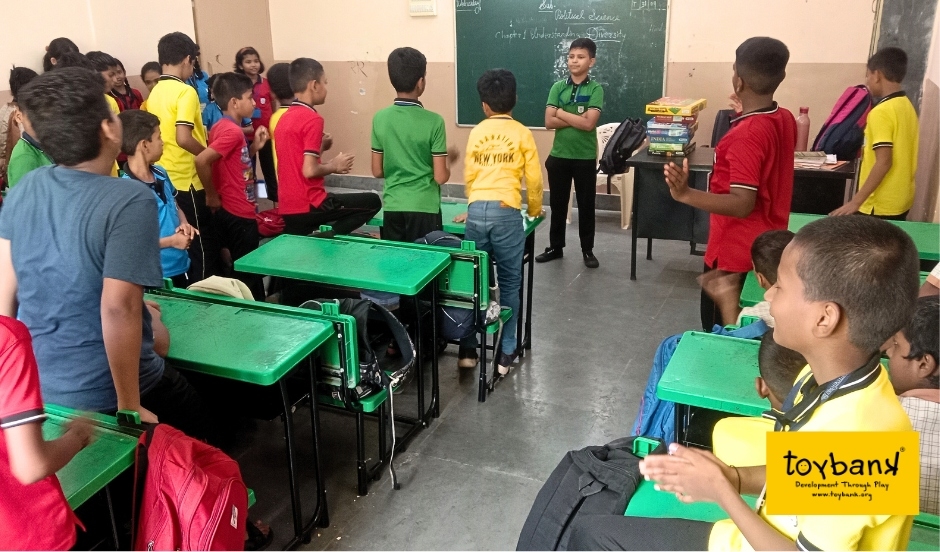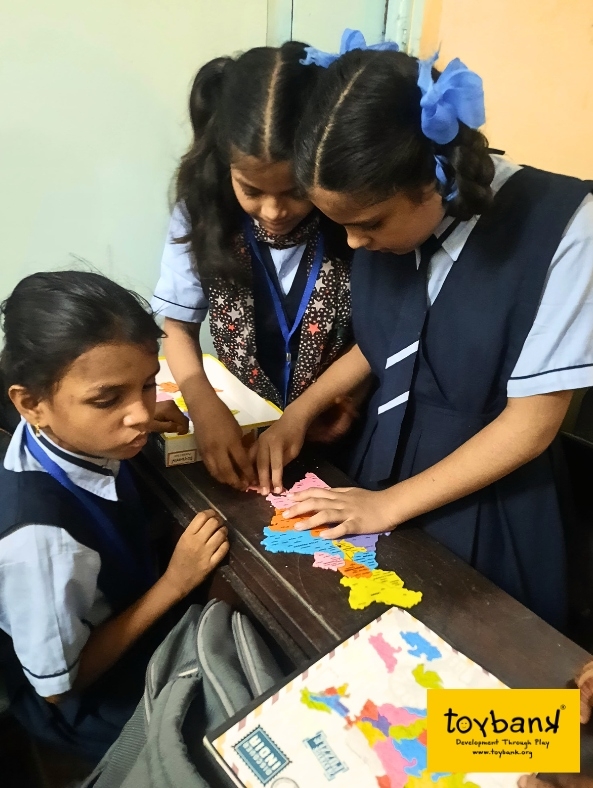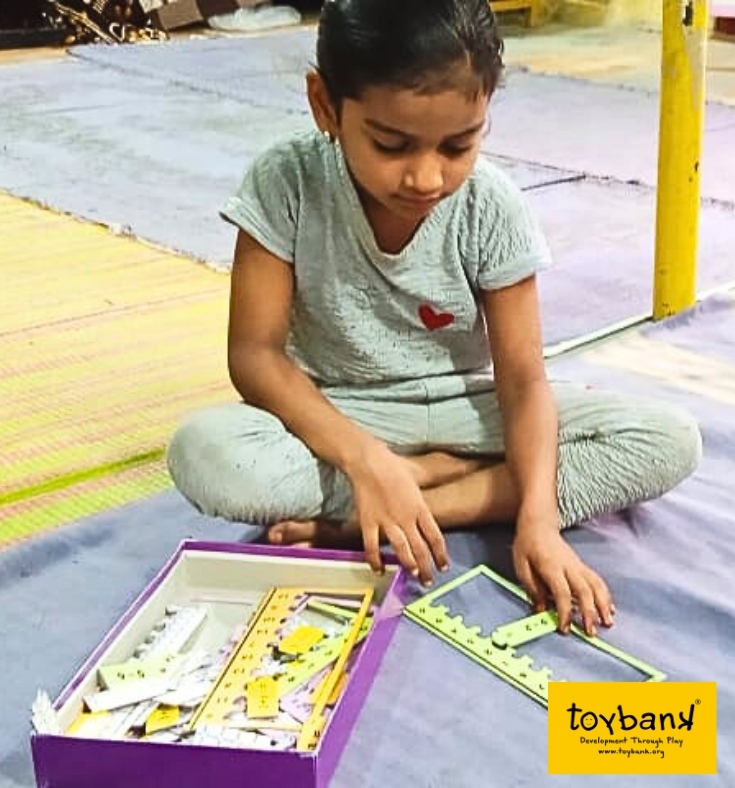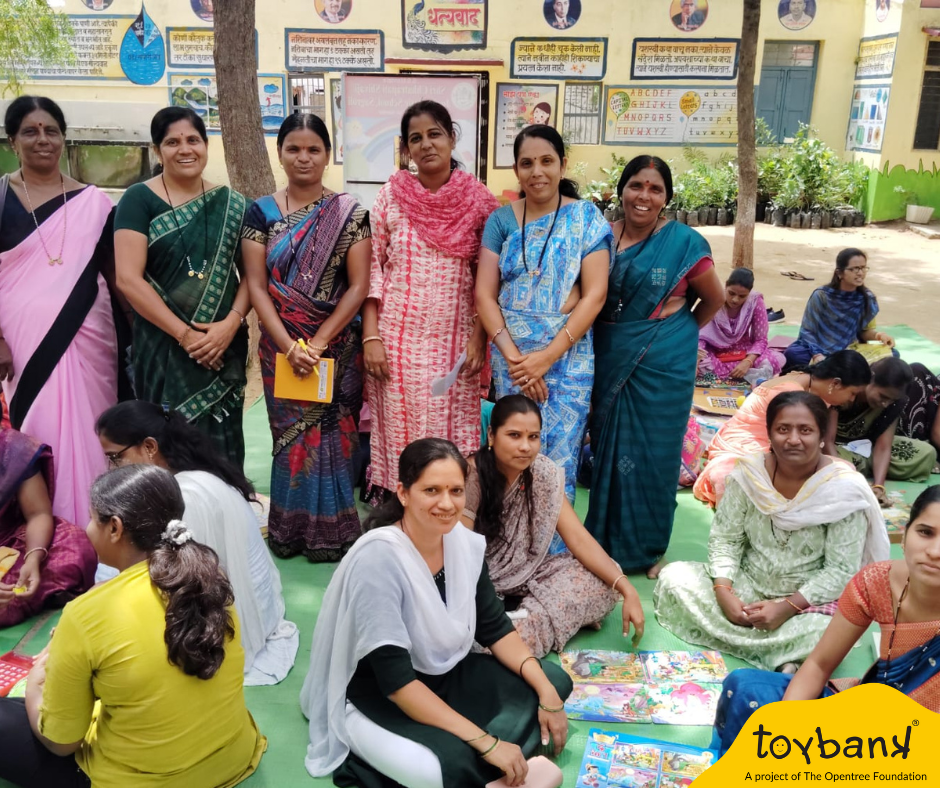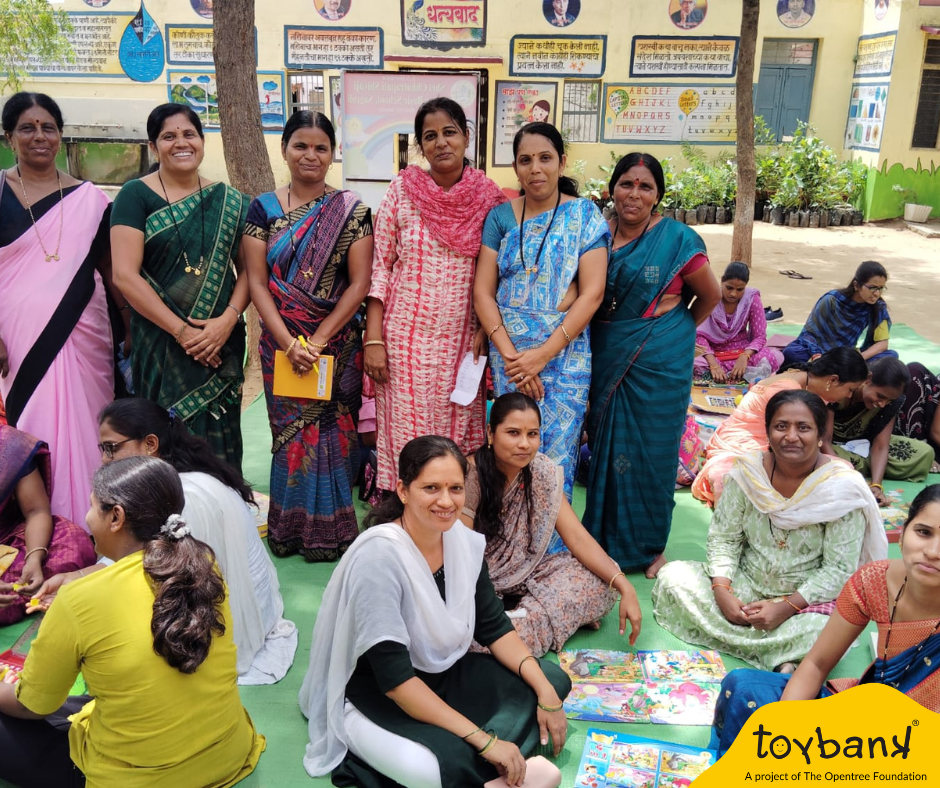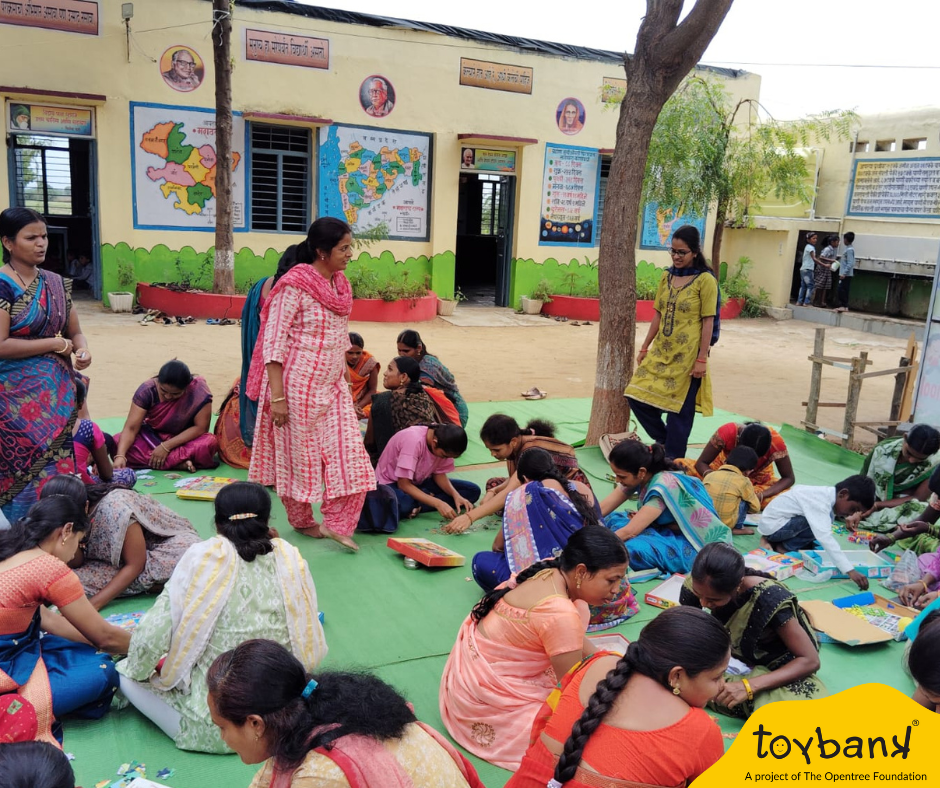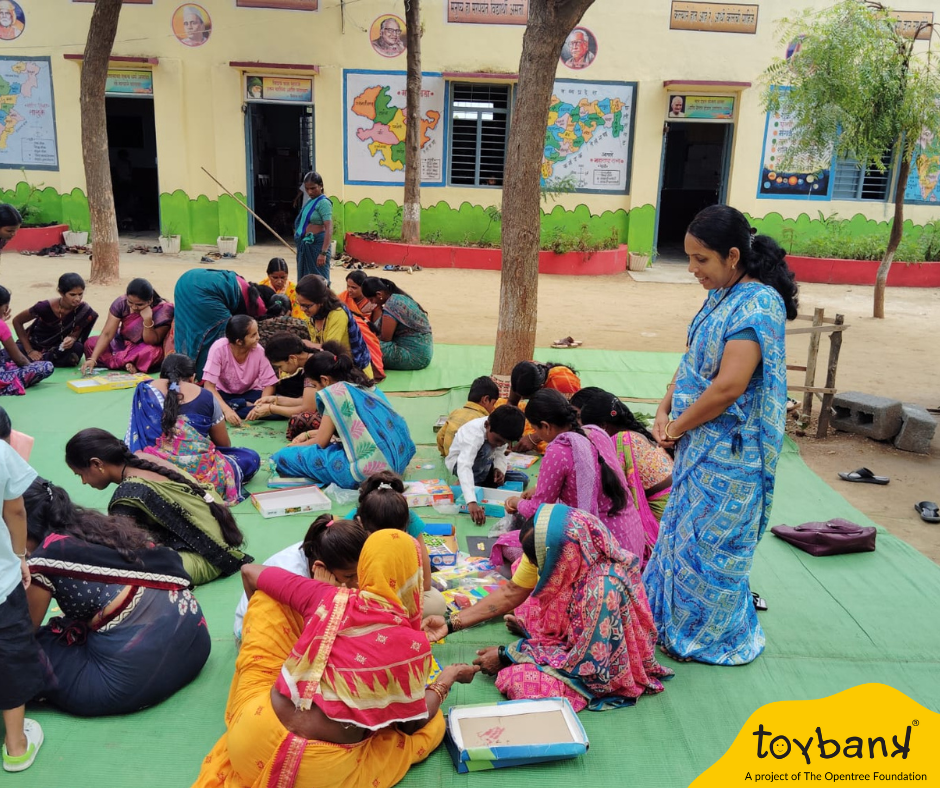Bridging the School Readiness Gap: New Play Programme launched in 65 Mumbai Anganwadis
“School readiness is not just about recognising letters or numbers – it is also about building behavioural and social skills in children. Play has a significant role in children’s development.”
– Sharad Kurhade, Child Development Project Officer
In India, the transition from early childhood education to formal schooling remains a critical juncture for children, particularly those from underserved communities. While there is a recent focus on improving foundational literacy and numeracy (FLN), the broader picture of school readiness is often overlooked. Many children enter formal schooling without the necessary readiness, facing challenges such as struggling to communicate, managing emotions, working collaboratively with peers, and adapting to structured classroom environments. These challenges, in turn, affect their ability to engage with academic content effectively, leading to frustration, disengagement, low learning outcomes and sometimes even dropouts.
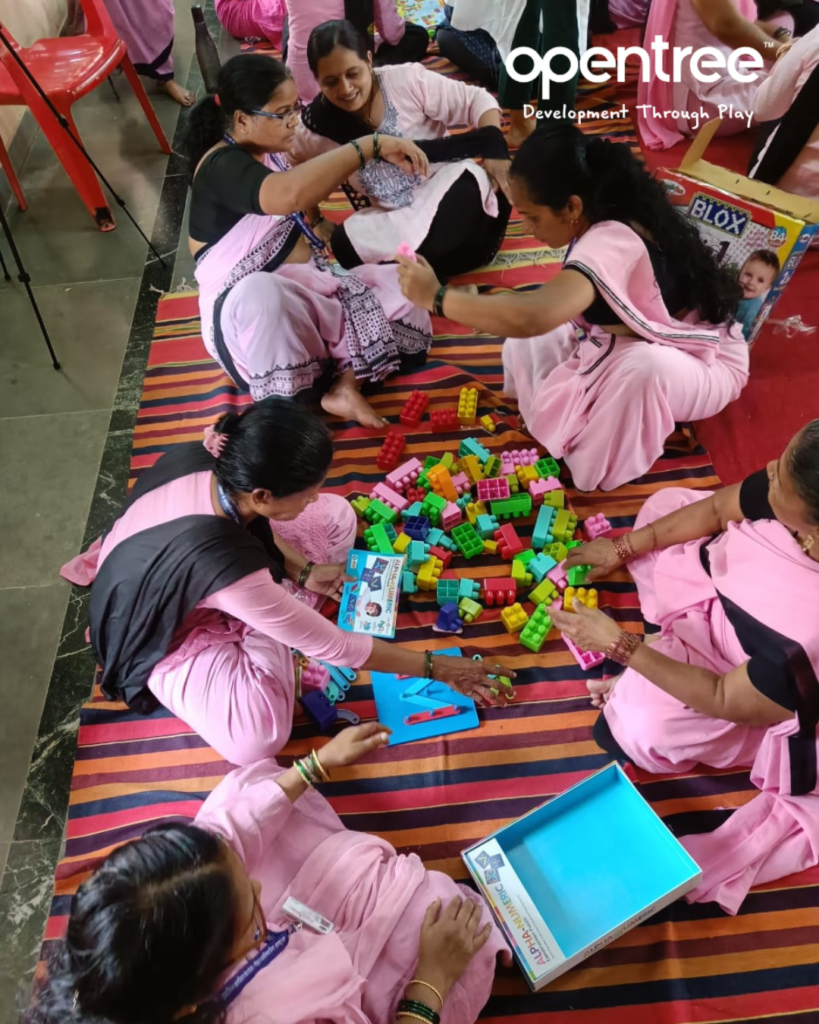
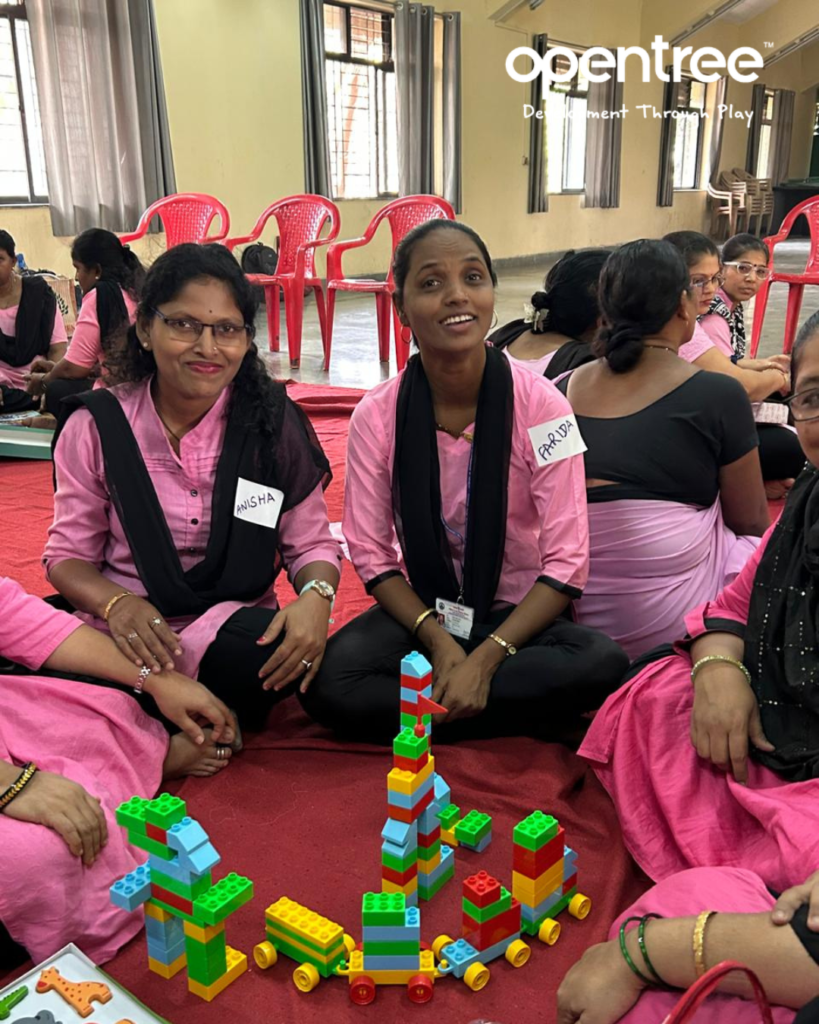
To address this gap, The Opentree Foundation launched the School Readiness Play Programme (SRPP) in March. The programme focuses on building behavioural, emotional, and social skills in anganwadi children, essential for a smooth transition to Class 1. SRPP was launched in 65 anganwadis in Mumbai, in partnership with the Integrated Child Development Services (ICDS), in presence of Sharad Kurhade from the District Women and Child Development Office.

“The inaugural workshop of the School Readiness Play Programme has been instrumental in empowering our anganwadi teachers to use the given play materials for children’s holistic development,” Kurhade said. “We are certain that our anganwadi teachers will use these play materials to build foundational skills – cognitive, social and emotional – in their anganwadi children, helping them transition to formal schooling happily and with confidence. We hope The Opentree Foundation can expand this programme to all 183 anganwadi centres under our jurisdiction, and are committed to supporting them.”
While The Opentree Foundation has implemented Life Skills play programmes for children from pre-primary to Class 8, this initiative sharpens our focus on ensuring that our youngest learners are truly ready for school.
Anganwadi teachers are the backbone of early childhood education, and make sure children enter formal school ready to learn and thrive.
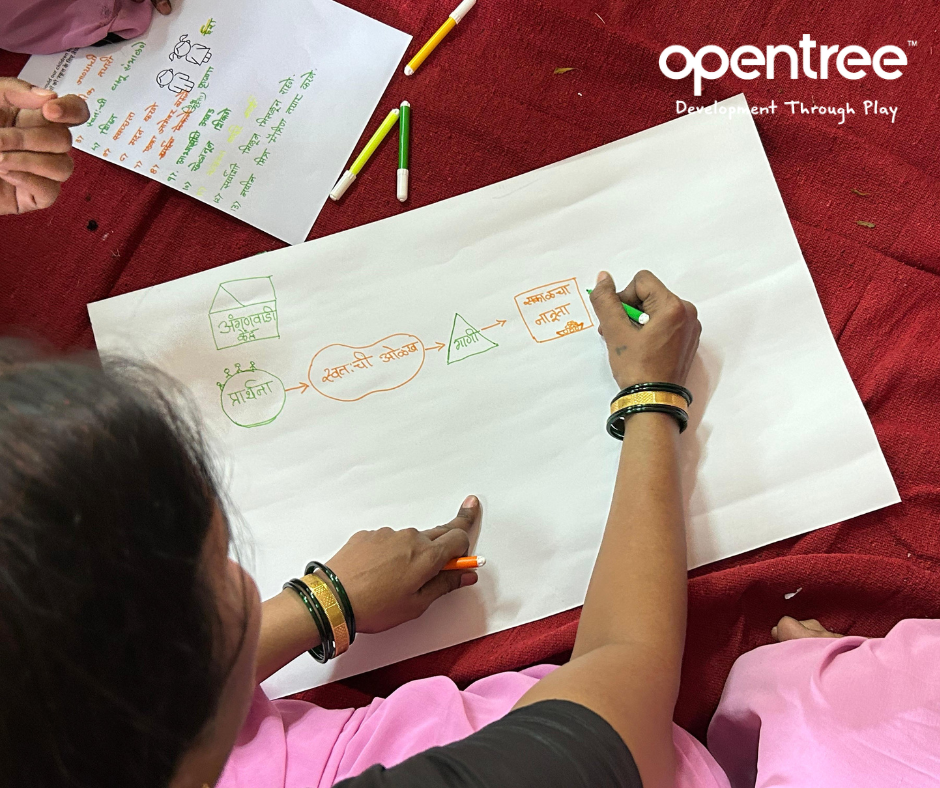
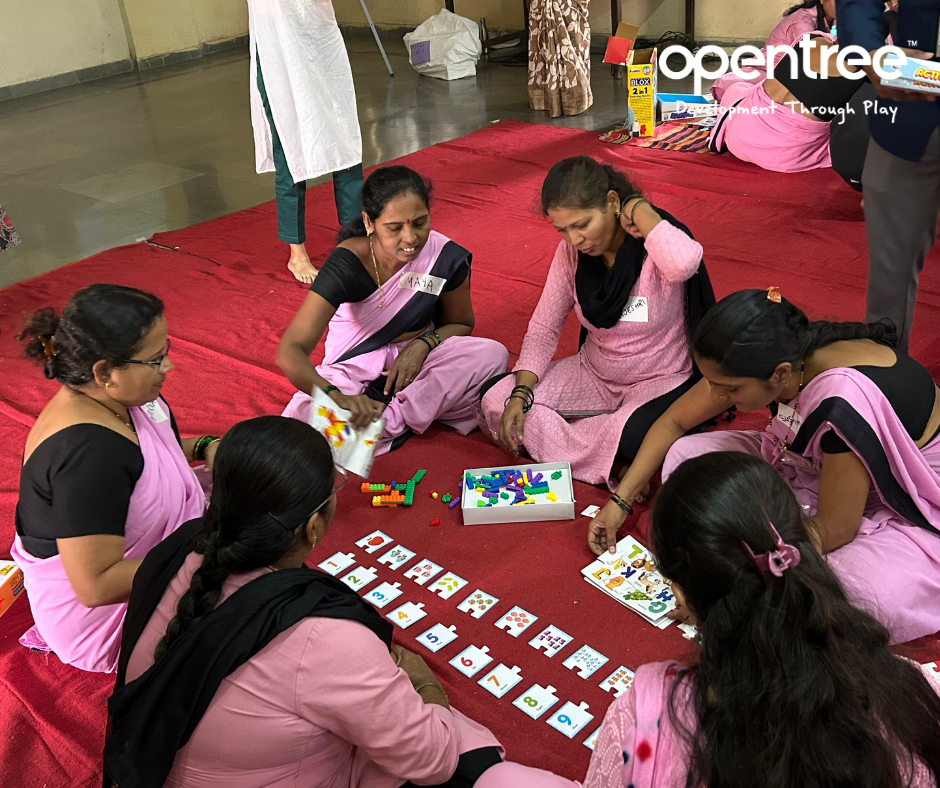
School readiness is more than just foundational literacy and numeracy — it’s also about emotional and behavioural preparedness. Through our programme, we are empowering anganwadi teachers with play-based learning to make school readiness more engaging and impactful. For children, confidence, adaptability and motivation play an important role in helping them transition smoothly into formal schooling. However, many children, particularly those from marginalised communities, struggle not only due to learning gaps, but also because they face difficulties in adjusting, which affects their curiosity for learning and self-confidence.
Excerpts of our conversation with Sharad Kurhade:
Importance of Play for Anganwadi Children
Many of our anganwadi children come from low-income families, where parents cannot afford expensive pre-school education. In homes where providing even two meals a day is a struggle for parents, being able to purchase and provide toys is a distant dream. As a result, our future generations are at a serious risk of losing their most fundamental childhood right – the Right to Play. The play material kits provided by Toybank are valuable in addressing this gap. They complement the materials from ICDS, and provide additional opportunities for building skills. These play materials will go a long way in making early childhood education at anganwadi centres more engaging, joyful and inclusive, ensuring improved school readiness in all children. Additionally, this will also create a positive perception of anganwadis as quality learning spaces, increasing enrollments.
Developmental Benefits for Children Through This Initiative
Learning through play is a globally recognised, integral approach for the holistic development of children. School readiness is not just about recognising letters or numbers – it is also about building behavioural and social skills in children. Play has a significant role in children’s development. Through play, children enhance their cognitive, physical, emotional, and social skills — fundamental aspects of human growth. Play makes learning fun and engaging, helping children explore and develop essential skills.









